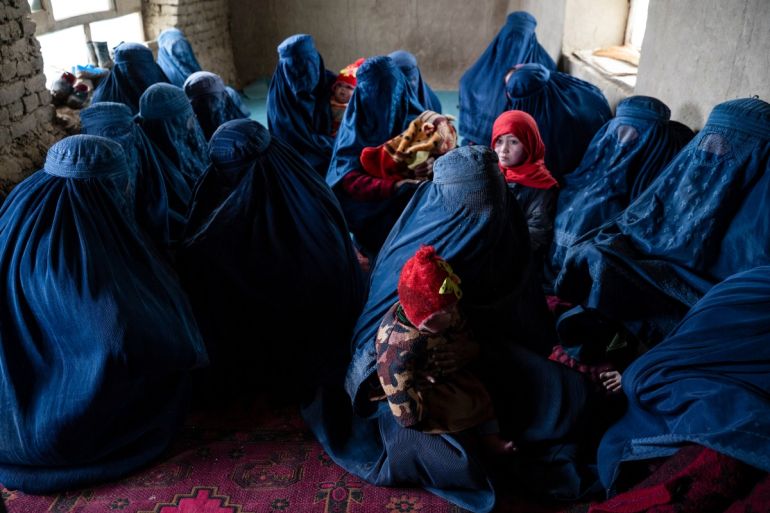ICC seeks arrests of Taliban leaders over alleged persecution of women
Judges say Taliban officials have ‘severely deprived’ girls and women of rights, including education.

Published On 8 Jul 20258 Jul 2025
The International Criminal Court (ICC) has issued arrest warrants for two top Taliban leaders on charges of persecuting women and girls.
ICC judges on Tuesday said there were “reasonable grounds” to suspect Taliban Supreme Leader Haibatullah Akhunzada and chief justice Abdul Hakim Haqqani of committing gender-based persecution.
Recommended Stories
list of 4 items
Why Afghan women are leaving Afghanistan
end of list
“While the Taliban have imposed certain rules and prohibitions on the population as a whole, they have specifically targeted girls and women by reason of their gender, depriving them of fundamental rights and freedoms,” the court said in a statement.
The Taliban has “severely deprived” girls and women of the rights to education, privacy and family life and the freedoms of movement, expression, thought, conscience and religion, ICC judges said.
“In addition, other persons were targeted because certain expressions of sexuality and/or gender identity were regarded as inconsistent with the Taliban’s policy on gender.”
The court said the alleged crimes were committed from August 15, 2021, when the Taliban seized power for a second time, and continued until at least January 20 this year.
The court’s chief prosecutor, Karim Khan, sought the warrants in January, saying they recognised that “Afghan women and girls as well as the LGBTQI+ community are facing an unprecedented, unconscionable and ongoing persecution by the Taliban”.
The rights group Amnesty International welcomed the move by the ICC, saying it was an “important step towards justice”.
“The announcement is an important development that gives hope, inside and outside the country to Afghan women, girls, as well as those persecuted on the basis of gender identity or expression,” Amnesty International chief Agnes Callamard said in a statement.
Advertisement
“This is a crucial step to hold accountable all those allegedly responsible for the gender-based deprivation of fundamental rights to education, to free movement and free expression, to private and family life, to free assembly, and to physical integrity and autonomy.”
Human Rights Watch also welcomed the decision.
“Senior Taliban leaders are now wanted men for their alleged persecution of women, girls, and gender non-conforming people. The international community should fully back the ICC in its critical work in Afghanistan and globally, including through concerted efforts to enforce the court’s warrants,” Liz Evenson, the group’s international justice director, said in a statement.
The ICC, based in The Hague, was set up to rule on the world’s worst crimes, such as war crimes and crimes against humanity. It has no police force of its own and relies on member states to carry out its arrest warrants – with mixed results.
In theory, this means anyone subject to an ICC arrest warrant cannot travel to a member state for fear of being detained, but leaders such as Israeli Prime Minister Benjamin Netanyahu, Russian President Vladimir Putin and former Sudanese President Omar al-Bashir have travelled to allied countries that are ICC members and have not been arrested.
Last year, the United Nations accused the Taliban government of barring at least 1.4 million girls of their right to an education during their time in power.
Taking into account the number of girls not going to school before the group came to power, the UN said 80 percent of Afghan school-age girls – a total of 2.5 million – were being denied their right to an education.
Authorities also imposed restrictions on women working for nongovernmental groups and other employment, and thousands of women lost their government jobs.
Beauty salons have been closed and women blocked from visiting public parks and gyms as well as travelling long distances without a male chaperone.
A “vice and virtue” law announced a year ago ordered women not to sing or recite poetry in public and for their voices and bodies to be “concealed” outside the home.
